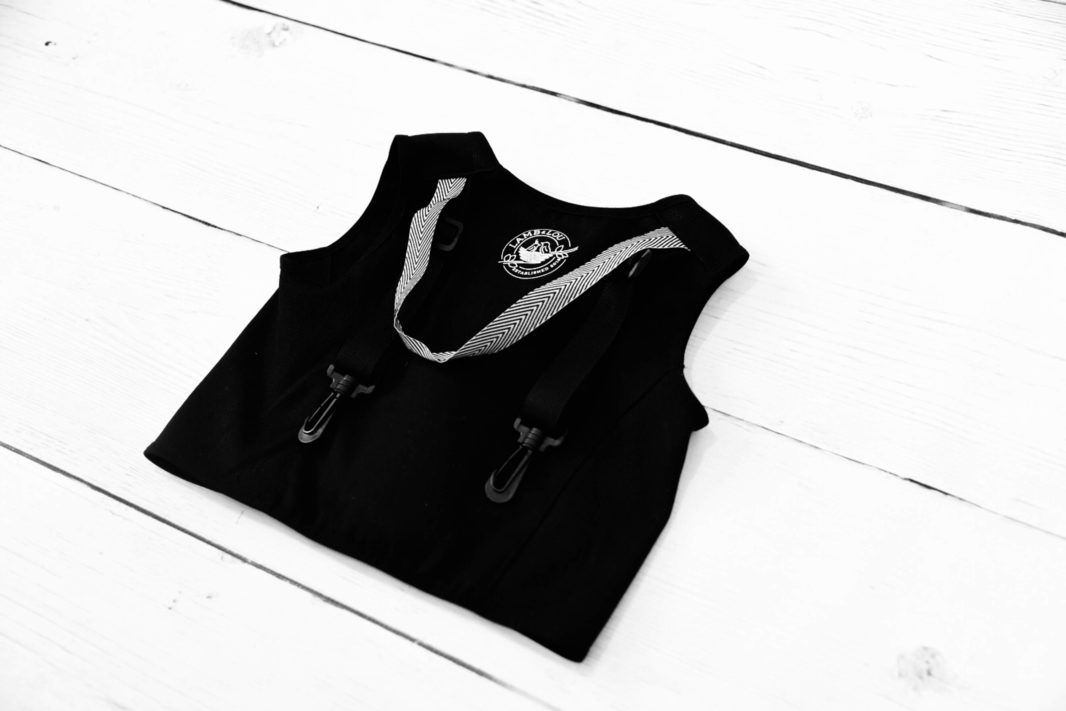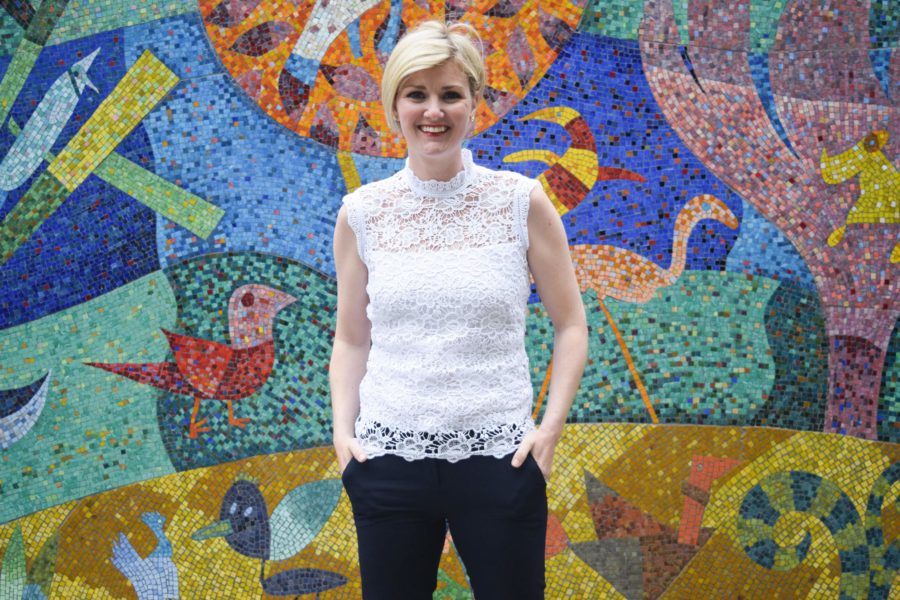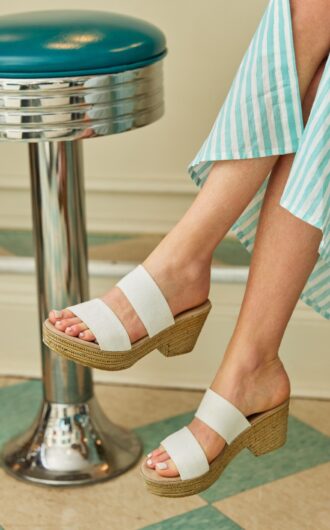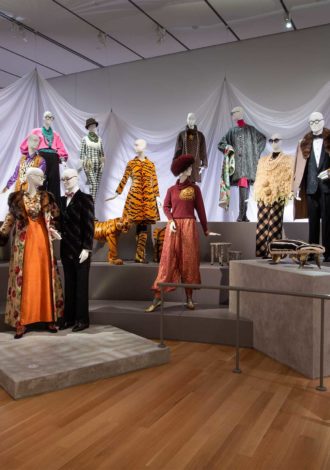Over the past 10 years, Kaitlyn Litchfield has been a probation officer, realtor, sales associate, boutique marketer, stay-at-home mom and professional photographer. But, today, at long last, she has found her rightful place as an entrepreneur and creator of Lamb & Lou, a company she founded to not only help her own kids, but children everywhere.
Lamb & Lou is the Massachusetts-based company behind the Original Shopping Cart Vest, a product that helps parents keep their children safe and secure in shopping cart seats.
The idea for the vest, the first of its kind on the market, came from multiple heart-stopping moments Litchfield experienced as she attempted to get her shopping done with her one-year-old son, Cam, in tow.
Cam, being the adventurous and energetic toddler he is, would often break loose from his shopping cart seat belt and nearly fall off the cart.
“Every shopping trip was a bad accident waiting to happen,” says Litchfield. “The shopping cart strap didn’t fit, especially as he got bigger, and it just wasn’t secure enough.”
Litchfield isn’t the only parent who has struggled with the dangerous risks involved with children and shopping carts. A data study conducted by the Nationwide Children’s Hospital found that from 1990 to 2011, there were 530,494 children treated at U.S. emergency departments for shopping cart related injuries: That’s over 24,000 children annually, i.e. 66 children per day.
After another near-accident with Cam in a shopping cart in 2015, Litchfield went home and tried to search online for a solution. When she couldn’t find one, she toyed with the idea of making one herself.
“I had the idea, but then life got in the way,” says Litchfield. In the midst of this, Litchfield and her husband were figuring out how to best support Cam, who was diagnosed with autism, and she gave birth to their second son.
“I then had the same exact struggle with my second son while shopping,” says Litchfield. “I said, ‘Enough is enough. I’m doing this now.’”
With inspired action, she cobbled together a crude prototype of a shopping cart vest made with parts of a car seat belt and a hot glue gun. “My husband came home and was like, ‘What’s going on?’ and I said, ‘I’m finally doing it, I’m making the vest,’” says Litchfield.

Lamb & Lou’s shopping cart vest
It wasn’t until the summer of 2018 when her idea finally gained traction. She pitched the product to the Massachusetts Small Business Administration, and they connected her to a local designer to improve it.
Thanks to both a Massachusetts-based designer and manufacturer, the final version of the Original Shopping Cart Vest was introduced to the market in late last fall.
The vest, made with a lightweight, poly-cotton blend fabric and reinforced stitching, is worn by the child while the vest itself is securely strapped onto the cart as they sit in the front seat.
“The child is contained, but not restricted,” says Litchfield. “I even added some sensory fabric details, which was inspired by Cam who likes to touch different textures.”
Mothers who are already bogged down with strollers, diaper bags and everything else in between can conveniently fold up the Lamb & Lou vest and tote it around in a purse; it hardly takes up any space.
Litchfield’s strong network of local mommy groups in the South Shore became her focus group and market research tool while putting together the vest’s final design.
“I call it, ‘mom to mom marketing’” says Litchfield. “If a mom recommends something to me, I’ll try it over any other recommendation.”
As the entrepreneur prepares to make an order of 500 vests for customers this spring, Litchfield has observed that the Lamb & Lou shopping cart vest is especially beneficial for children with disabilities.
One of Lamb & Lou’s customers is a mother of a child with Down syndrome who normally wasn’t able to sit upright on her own in a shopping cart. With the extra support of the vest, the young girl can sit happily and comfortably.
Litchfield’s most recent job before starting Lamb & Lou was working as a full-time photographer. In a way, Kaitlyn Litchfield Photography was her first-ever business venture, but now she sticks to taking photos for fun or doing freelance projects.
“I never felt like a 9-to-5 job was for me. I was trying to figure out how I could be a mom and also be my own boss,” says Litchfield.
Litchfield says her biggest challenge as new business owner was not “having enough confidence in myself to put my idea out there and say, ‘I’m an entrepreneur.’”
You end up hearing a lot of “no’s” and come across some naysayers, she adds.
Not to mention, sleep is elusive as an entrepreneur, especially during the startup phases. “I manage all of the social media, the email marketing, the customer service. I built the website, and I do the shipping and receiving from home,” says Litchfield.
She lists out all her tasks — not to complain of the work, but to proudly share how she no longer lacks the confidence in her idea.
“I know there’s a need for this, and that it will help people.”



 4 min read
4 min read


